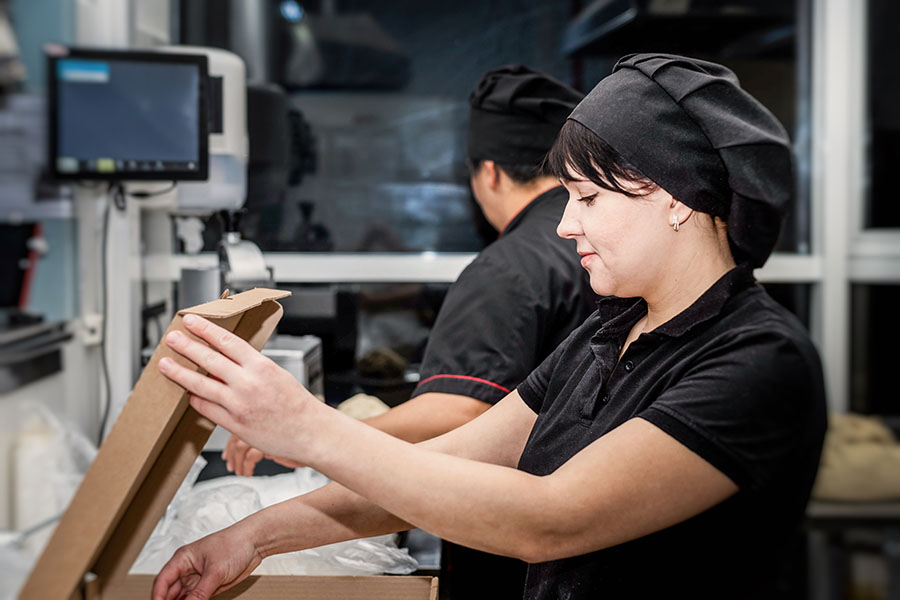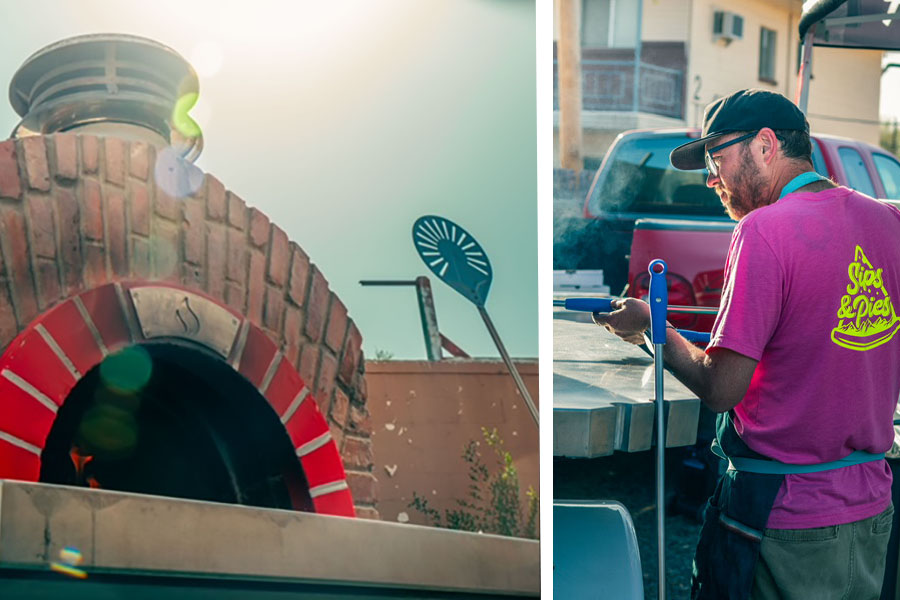How pizzerias are finding free money to boost the bottom line

Dave Brackett, owner of Pizzeria Rustica in Colorado, capitalized on $35,000 in tax credits.
It’s been five years since Dave Brackett has paid state income tax in Colorado.
Brackett’s no scofflaw, though, but rather capitalizing on a Colorado state program that provides tax credits for small business owners developing in designated areas throughout the state. In Old Colorado City, the Centennial State’s former territorial capital where Brackett’s seven-year-old restaurant, Pizzeria Rustica, resides, Brackett’s work to provide jobs and improve his property has resulted in about $35,000 in tax credits since 2009.
“The credit against my Colorado state income tax has just rolled over year to year,” Brackett says.
In readying Pizzeria Rustica for its 2008 opening, Brackett invested $150,000 in constructing his pizzeria, a former gallery space. He estimates that roughly 70 percent of the build out work, including installing specific appliances and a grease trap, qualified for the enterprise zone tax credit he received. Initially unaware of the incentive, Brackett later refiled his taxes to capture the benefits.
“A lot of people don’t know these incentives exist, but there are enterprise zones all over the country and opportunities for pizzerias to save money,” Brackett says.
From tax abatements and municipal grants to incentives from utilities for energy-efficient operations or design, there’s free money in the marketplace pizzeria owners can access to improve their financial standing and their shop’s bottom line.
Such opportunities are always on the mind of Atlanta restaurateur Keiran Neely.
When Neely purchased Pizzeria Vesuvius in Atlanta’s historic Edgewood District in 2012, he did so well aware of the city’s plans to reignite development along Edgewood Avenue, once one of the city’s most grand strips.
Buoyed by a $47 million check from the federal government, Invest Atlanta –– the city’s economic development arm –– set aside specific funds for local businesses to refresh the exterior of their properties, pledging to supply $2 for every $1 qualified businesses invested in exterior upgrades. Neely completed his application and sent in the $250 application fee.
“If the city is offering you a slice of the pie, then why not take it?” Neely says.
In early 2014, Invest Atlanta approved Pizzeria Vesuvius’ application and Neely entered the due diligence process. He provided Invest Atlanta a number of requested particulars, including architectural renderings and financial statements, and hopes to have final approval in hand sometime early this year. Thereafter, he will rejuvenate his shop’s façade with fresh paint, new windows and an awning.
“Our exterior is not run down, but there’s not much pizzazz to it,” Neely says. “This project will certainly help that.”
In addition to the facade upgrade funds, Neely also earns a tax break for being in an Atlanta Empowerment Zone. Specifically, for every new employee he hires, he receives a tax credit against that individual’s payroll taxes.
“Emerging areas often have funds set aside to drive improvement in economic development, so the incentives are there if you’re willing to do the work and take some of the risk,” says Neely, who also owns a barbeque restaurant and a gastropub in other developing Atlanta neighborhoods.
Brian McMahon, executive director of the New York State Economic Development Council, an organization that represents economic development professionals throughout the nation’s fourth most populous state, says there are rich opportunities for small businesses across the country to take advantage of tax abatements, municipal grants, utility credits and other development programs aimed at revitalizing communities, delivering jobs and sparking broader economic development.
McMahon says most cities and towns have local development corporations that administer both loan and grant programs for small businesses, while utilities often support small retail businesses with grants or incentives for facility upgrades. New York’s Main Street Revitalization Program, for instance, provides matching grants to commercial adaptive re-use projects and renovation of commercial or mixed-use buildings less than 100,000 square feet.
“Some utilities also provide a lower rate for electricity for businesses located in urban revitalization zones,” McMahon adds, noting that utilities often have “significant economic development resources.”
Mirroring other programs across the country, the State of New York also maintains a local real property tax abatement program that provides a 50-percent abatement on property improvements when the investment exceeds $10,000. The reduction decreases five percent each year over 10 years.
In addition to local development corporations and utilities, McMahon suggests pizzeria owners contact their local industrial development agency, which is typically the lead economic development organization in a county, city or town. He also calls the local office of economic development and the chamber of commerce great resources as well.
“Chambers don’t always administer economic development programs, but they are good referral organizations,” McMahon says.
Four steps to securing incentives, grants and
other free money
- Make it a priority. Owners should either designate specific time to pursue these opportunities or assign a motivated employee to explore potential programs and gather pertinent details.“A lot of us are buried in the trenches, but we can’t ignore these opportunities,” Pizzeria Vesuvius Owner Keiran Neely says, reminding that many programs set strict deadlines.
- Be proactive and inquisitive. Connect with other restaurateurs, small business owners and vendors to discover prospective incentive programs. During a chat with his health care provider, for instance, Pizzeria Rustica owner Dave Brackett learned he qualified for tax credits for the health insurance he provided his full-time employees. Thought not subject to the Affordable Care Act mandate, Brackett’s decision to pay 60 percent of his employees’ health insurance resulted in a tax credit that nearly offsets his costs.“Nothing ever happens by sitting on your hands,” Brackett reminds.
- Work with professionals in the know. Accountants experienced in dealing with small businesses and entrepreneurs are often aware of financial incentives, Brackett says, and their insights can help owners as they plan a new unit or renovation, consider hiring additional employees or refresh their business plan.
- Follow directions. To secure these funds, owners must comply with all directives and provide a complete and detailed application or filing that shows the pizzeria as a credible, professional operation.“You get the reward by following the directions and leaving no doubt that you know what you’re doing,” Neely says..
Chicago-based writer Daniel P. Smith has covered business issues and best practices for a variety of trade publications, newspapers, and magazines.







